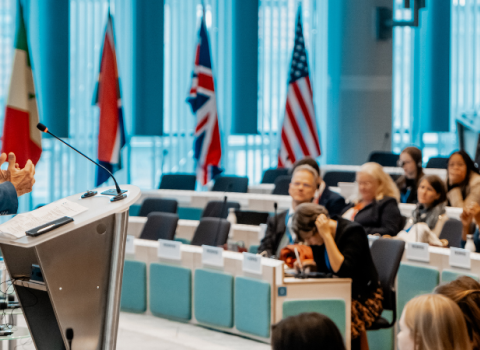UNESCO’s Global Open Science Partnership is well-timed in promoting a much-needed global dialogue on Open Science. EUA expert Bregt Saenen discusses the initiative, its evolving backdrop and why it is such a promising start.
The UNESCO Global Open Science Partnership is timely and necessary. It is an opportunity to work towards a global consensus on the transition to Open Science and the adoption of a “UNESCO Recommendation on Open Science” in 2021. The partnership comes at a crucial time as global dynamics are emerging that will influence the potential for opening the research process and its outcomes to societies at home and abroad.
The Covid-19 pandemic continues to have a major impact worldwide and has reaffirmed the importance of research and innovation in providing new and evidence-based solutions to society. The search for a vaccine is one of many examples across all academic disciplines highlighting the benefits of Open Science. Sharing the genome sequence of the new coronavirus demonstrated how open and transparent practices accelerate the research process at an unprecedented speed, while subsequent progress updates on candidate vaccines have done much to bring the process closer to the general public.
However, the impact of the Covid-19 pandemic has also contributed to a further hardening of international relations. This deterioration at the global level is starting to politicise research and innovation not just between the US and China, but also in Europe as the discussion on digital and tech sovereignty is moving to the front of the policy agenda. While this ill-defined concept does not necessarily stand in opposition to Open Science, arguments for opening the research process and its outcomes could in this context easily be misconstrued as naive at best, and harmful to national interests at worst.
These global dynamics serve as a reminder that the transition to Open Science does not happen in a vacuum. Communities arguing in favour of open and transparent research practices will need to contend with this shifting context, which is creating both unique opportunities and daunting challenges.
UNESCO’s Global Open Science Partnership provides a platform for communities from different world regions to come together and discuss the transition to Open Science. It provides an opportunity to reflect on open and transparent research processes against the backdrop of a shifting global context, but also to go one step further and explore how Open Science can contribute to closing divides and improving relations.
EUA, an active partner in the UNESCO initiative, recently provided input from a European perspective during a regional consultation. Vinciane Gaillard, EUA Deputy Director for Research and Innovation, emphasised that the transition to Open Science entails encompassing systemic, cultural and technical reforms. These will be changes integral to the future of research and innovation and, as such, cannot be seen in isolation from guidelines such as those found in the "UNESCO Recommendation on Science and Scientific Researchers" adopted in November 2017. The transition is a shared responsibility that requires a concerted approach uniting the main actors.
EUA is committed to a global dialogue as the way forward for a sustainable transition to Open Science. The first draft of the “UNESCO Recommendation on Open Science” is a promising start. On a global level, it will be important that Open Science does not increase existing gaps but contributes to closing them. Global recommendations should therefore be based on principles endorsing inclusivity and equity, whereby the input from countries, universities and other research and innovation actors in less privileged world regions will be particularly relevant.
This article was first published on 19 October by EUA.





 A unique international forum for public research organisations and companies to connect their external engagement with strategic interests around their R&D system.
A unique international forum for public research organisations and companies to connect their external engagement with strategic interests around their R&D system.